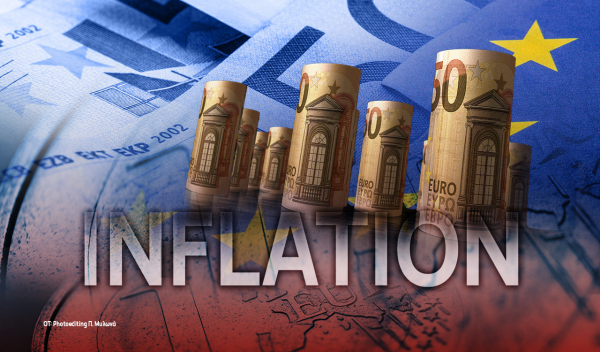
Athens is heading to the extraordinary council of energy ministers of the E.U. next Friday, September 30, with two demands. The European Commission’s “package” of measures to deal with high energy prices is on the agenda of the extraordinary council.
According to information available to OT, at the crucial meeting of the 27 ministers, Greek energy minister Kostas Skrekas will express the Greek government’s support for the Commission’s draft regulation, seeking, however, in two of the three proposed measures, improvements to the provisions for the benefit of the policy followed in the country for supporting households and businesses.
What the Greek side seeks
The proposed measures of the Commission and the aims of the government are:
1. The imposition of a revenue cap on power generation technologies, except for natural gas plants.
The European Commission considers that electricity producers using RES, nuclear power, coal, water without storage, geothermal and biofuels have windfalls due to low production costs. In these units, it proposes a maximum payment limit for producers with a price of 180 euros per Megawatt hour.
Greece is the first country to implement this measure, having also imposed a cap on natural gas. It therefore requests to be exempted from the Commission’s proposal and to maintain the upper limit for this technology. As well as continuing to implement the revenue recovery mechanism model it started in July.
However, the government has prepared that if it does not get an exception, specifically for the ceiling on natural gas, it will continue collecting revenue from the imposition of a fee of 10 euros per Megawatt hour on the quantities of gas used by electricity generation. The revenues amount to 400 million euros per year.
2. Mandatory electricity demand of 5% in peak hours and with voluntary measures of 10% for the total consumption.
Greece claims, according to information, that the reduction in peak hours – a measure concerning energy-intensive industry – be optional. It is noted that heavy industries will be compensated when they reduce their electricity consumption.
3. The imposition of an extraordinary 33% tax on the excess profits of oil refineries for 2022.
The Commission considers as extraordinary profits those in excess of 20% compared to the average of the previous three years. Minister Kostas Skrekas last Saturday in his statements to SKAI television, said that the government will implement the regulation and the specific provision.
Greek refiners are reacting to this proposal by asking that the profits derived from the obligation to keep stocks and exports be exempted from taxation.
Latest News

Greece Defines Continental Shelf Limits and Maritime Zones in Landmark EU Document
The Maritime Spatial Planning (MSP) framework represents a comprehensive approach to spatial planning and is crucial for the successful development of a blue and circular economy

EU Praises Greece’s RRF Progress as Revised Recovery Plan Nears Completion
Athens is preparing to submit its revised “Greece 2.0” Recovery and Resilience Plan after Easter, with a slight delay from the initial timeline but with the European Commission’s approval.

Greek €200M 10Y Bond to be Issued on April 16
The 3.875% fixed-interest-rate bond matures on March 12, 2029, and will be issued in dematerialized form. According to PDMA, the goal of the re-issuance is to meet investor demand and to enhance liquidity in the secondary bond market.

German Ambassador to Greece Talks Ukraine, Rise of Far Right & Tariffs at Delphi Economic Forum X
Commenting on the political developments in his country, the German Ambassador stressed that it was clear the rapid formation of a new government was imperative, as the expectations across Europe showed.

Athens to Return Confiscated License Plates Ahead of Easter Holiday
Cases involving court orders will also be excluded from this measure.

Servicers: How More Properties Could Enter the Greek Market
Buying or renting a home is out of reach for many in Greece. Servicers propose faster processes and incentives to boost property supply and ease the housing crisis.

Greek Easter 2025: Price Hikes on Lamb, Eggs & Sweets
According to the Greek Consumers’ Institute, hosting an Easter dinner for eight now costs approximately €361.95 — an increase of €11 compared to 2024.

FM Gerapetritis Calls for Unified EU Response to Global Crises at EU Council
"Europe is navigating through unprecedented crises — wars, humanitarian disasters, climate emergencies," he stated.

Holy Week Store Hours in Greece
Retail stores across Greece are now operating on extended holiday hours for Holy Week, following their Sunday opening on April 13. The move aims to accommodate consumers ahead of Easter, but merchants remain cautious amid sluggish market activity.

Green Getaway Ideas for Easter 2025 in Greece
Celebrate Easter 2025 in Greece the sustainable way with eco-farms, car-free islands, and family-friendly getaways rooted in nature and tradition.








































 Αριθμός Πιστοποίησης
Αριθμός Πιστοποίησης